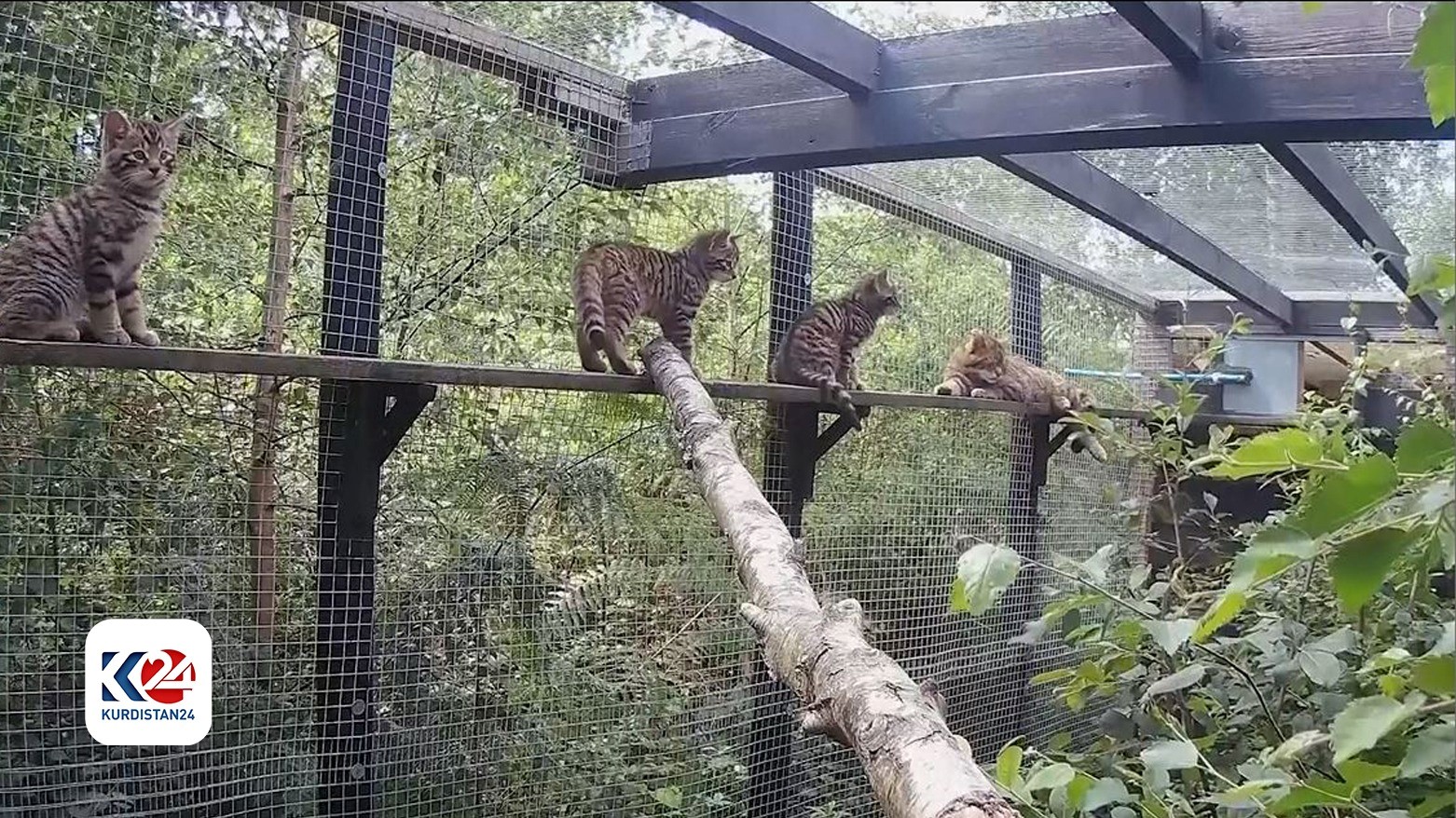UK wildlife park welcomes litter of 'critically endangered' wildcat kittens
The four kittens born at Wildwood Trust in Kent may one day be released into the wild, or take part in a national breeding program, ensuring the survival of the species in the UK.

CANTERBURY, UK (AP) - Interview with Sally Holt, head of carnivores and small mammals, Wildwood Trust:
STORYLINE:
With a few bumps along the way, these four young wildcat kittens are getting acquainted with their new surroundings at Wildwood Trust wildlife park in southeast England.
The kittens, now around nine weeks old, were born in the park's new dedicated "off-show" breeding enclosure, to parents Talla and Blair.
"It's lovely to see," says Sally Holt, head of carnivores and small mammals at Wildwood.
"We have four wildcat kittens that we uncovered in the last couple of weeks. We've got a wildcat pair, and we suspected she was pregnant. Their behavior changes quite dramatically when the pregnancy nears the end. And then five weeks later, the young emerge from their den box, or wherever she's chosen to rear them, and went down a couple of weeks ago and we saw them out."
The European wildcat is one of Britain's most endangered mammals.
The species is classed as "critically endangered" in the UK by the International Union for Conservation of Nature (IUCN).
Persecution and habitat loss have seen its numbers tumble and now just small pockets remain in the wild in the Scottish Highlands.
With less than an estimated 300 individuals left, the population has been declared "functionally extinct".
"They've just suffered a huge degree of habitat loss," explains Holt.
"And we've just driven them further and further up the country. So now, you can only find them in a very small section of the Highlands of Scotland. And they are now so rare to see and so difficult to find that it's hard to actually pin a number on how many are left."
Now around nine weeks old, these kittens will soon have their first vaccinations and health check-ups.
It's then that Holt and her colleagues will also learn the sex of the four kittens, and then begin giving them names.
"We're going to be going in and giving them their first set of vaccines," she explains.
"We also give them just to get health check. It's the first time that we are able to really look at them up-close, and we can sex them as well and find out what we've got in the litter."
Nothing is decided just yet, but these kittens may one day be released into the wild or take part in a national breeding program, helping to ensure the survival of the species in the UK.